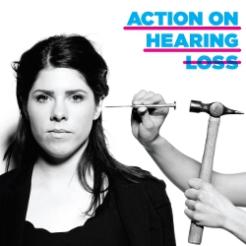Action on Hearing Loss finished its last financial year with an operating deficit of £2.1m, £600,000 worse than it had budgeted for.
Its total income for the year to March 2012 – the charity’s centenary year - was £37.5m, £3.5m or 9 per cent less than in 2011, and expenditure was £39.6m, down from £40.4m the year before. Its main income source, local authority contracts to support people with hearing loss, declined from £18.1m in 2011 to £16.7m in 2012. Voluntary income sustained a drop from just over £4m to £2.86m but legacies increased slightly from £9.1m to £9.2m.
The charity’s trading arm, RNID Activities Ltd, which arranges fundraising events and corporate partnerships and brokers commercial mailing list agreements, tripled its revenues from £79,000 in 2011 to £241,000.
The operating deficit, together with significant actuarial losses on the pension scheme of £6m, meant that total funds more than halved from £15.4m to £7.2m. Free reserves fell from £9.9m to £7m, exactly at the upper limit set by the board in its reserves policy.
A full actuarial valuation of the pension scheme was carried out on 31 March 2012 and valued the deficit at just over £11m. A payment plan that began in 2009 aims to eliminate the deficit by 2028.
Staff numbers fell slightly, from 760 full-time equivalents to 748, though the number of senior staff earning more than £70,000 increased by two to six. At the end of the financial year, 19 per cent of staff were disabled or had hearing loss.
During the 2011/12 year, Jackie Ballard was in her final year as CEO. She was replaced by Paul Breckell in August.
Gerald Corbett, the charity’s chair, made a personal donation of £20,000 to the charity during the year.
The charity said that in 2012/13 it would continue trying to reach the four million people who have not taken action to address their hearing loss. Activities will include a “high-impact campaign", promotion of the Hearing Check service, lobbying for a screening pilot for over-65s.
The charity itself will also start to develop a new organisation strategy based upon the demands made in its major research report, Hearing Matters, which was launched during the year.
Top of the list of most significant risks identified by Action on Hearing Loss is financial sustainability. In response, it has taken a cautious approach to budgeting and cut costs where possible. It has also drawn up a contingency plan if income does not meet projections.









